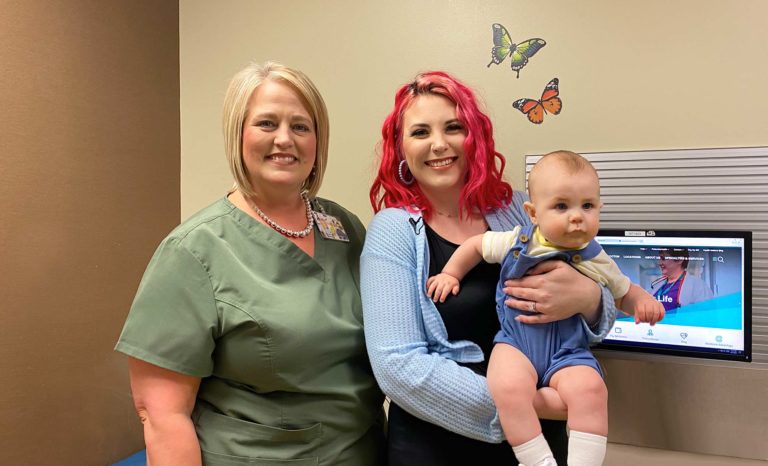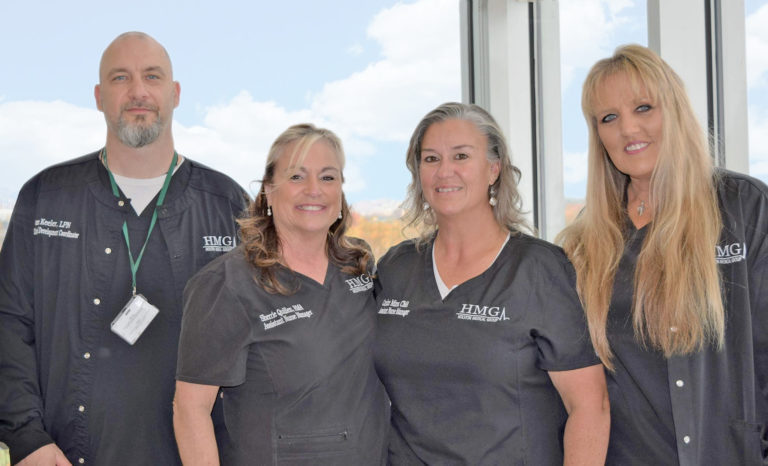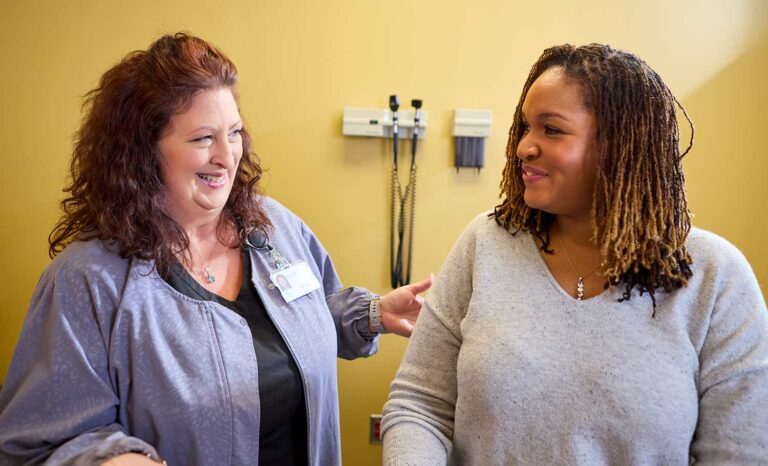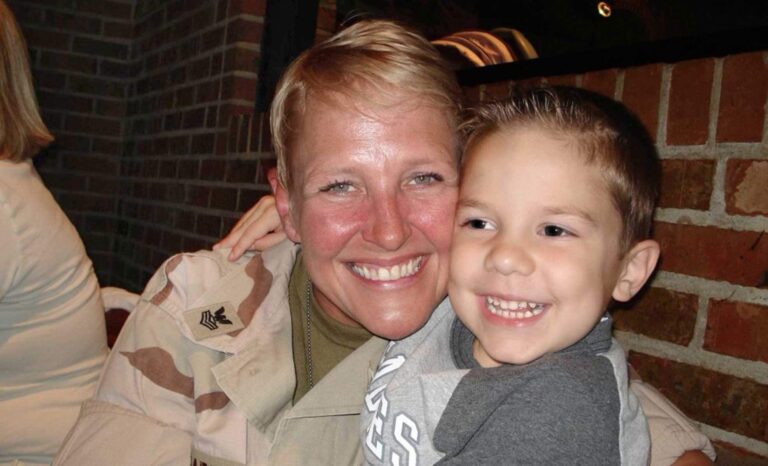I have always been committed to fitness, whether in school sports, state league soccer, biking (including amateur racing), or martial arts (second-degree black belt in karate). But what I’ve committed to doing now sounds a little crazy. Two years ago, Sergio Armani, a fellow Board member of the Association of Clinical Research Professionals (ACRP), wanted to do something special to raise awareness and money for scholarships to increase diversity in the clinical research workforce.
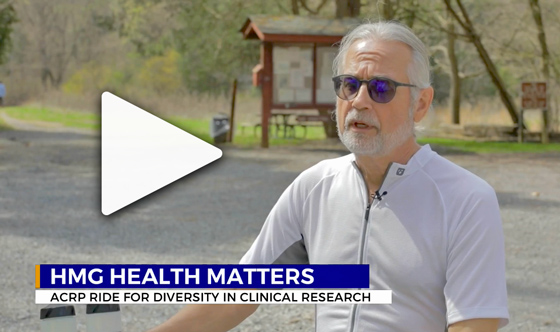 WJHL Interview: Dr. David Morin
WJHL Interview: Dr. David Morin
So, in 2021 and 2022, he and a colleague rode 355 miles from Pittsburgh, PA, to Alexandria, VA, via the GAP and C&O trails – old railroad ways now converted to gravel (and occasional mud) paths. Biking this route for six consecutive days can be a challenging ride at times, climbing the Cumberland Gap, devoid of many amenities and carrying their gear (about 40 lbs) on gravel bikes. The longest day is a 70-mile ride ending near Washington, DC.
But Sergio found his riding partner couldn’t go last November, so I signed up. Since then, another rider has decided to join the group. His name is Scott Chatterton. The three of us have been training since late last year. We’ve drawn close sharing tips and seeing the daily progress and struggles each faces, with no illusions about the challenges this ride imposes. It’s not for the unprepared.
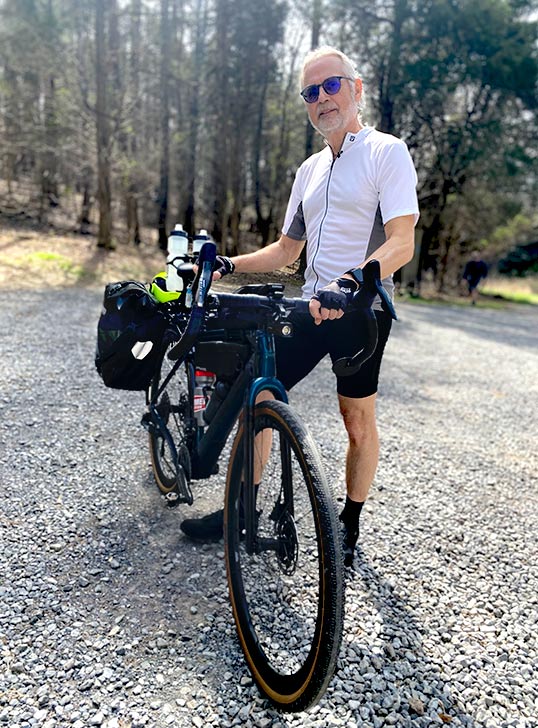
I turned 65 last year, and despite shoulder, knee, and back surgeries, I feel blessed with good health. My Peloton and mountain bike have had plenty of use, but that was just a start. Unfortunately, the bikes in my stable were unsuitable for this type of ride, so I bought a gravel bike, gear, and supplies. In November, I laid out a training plan which had to be – just right. It’s the “Goldy Locks” approach; push yourself enough to improve your fitness gradually such that you’re ready just before the ride but not so hard that you burn out or get injured. Focus on the nutrition side so your body correctly recovers. Anyone training for a marathon or ultra-endurance event is aware of the process.
I’ve also been a clinical researcher for over 35 years. That means I safely navigate the study participant through the clinical trial to produce valid and helpful information that can be used for better medicines and devices. The challenge is that when we test new treatments, we must learn how they work for everyone: age, race, ethnicity, gender, etc.
Diversity in clinical trials is essential because it helps make medicines safer for people of every background. So, I’m joining friends and colleagues Sergio and Scott on a six-day fund-raising trek through mountains and mud called the ACRP Ride4DEI.
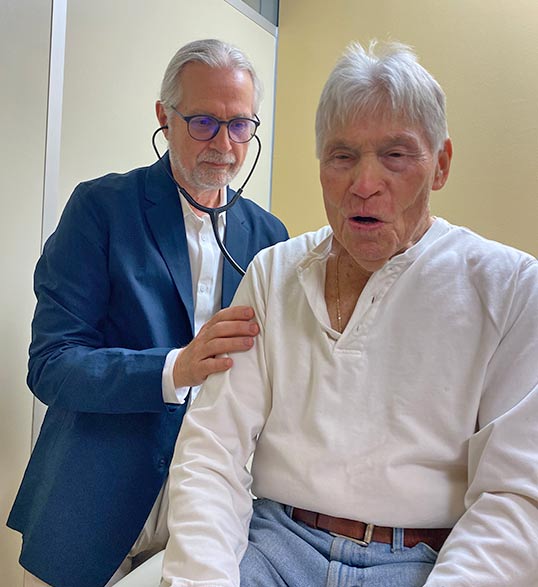
What are Clinical Trials?
A clinical trial is a scientific process used with human volunteers to determine the safety and efficacy of investigational (not currently approved) treatments under the watchful guidance of the Investigators and study staff. It is a long, multi-stage process with lots of safeguards built into it, including the FDA and Institutional Review Board’s oversight. As the director of Holston Medical Group’s clinical research department, I oversee that process. Sometimes, these leading-edge medicines are the only treatments available to help a patient. Other times, they give patients an additional treatment option. Either way, a clinical trial must show that a drug is safe and effective before being approved in the U.S. by the Food & Drug Administration (FDA). Only then can it be prescribed for the disease intended.
Why Diversity in Clinical Trials is Important
The ACRP has over 13,000 members and is the only non-profit organization representing and supporting clinical research professionals. The ACRP’s mission is to promote excellence in clinical research. One way to do that is to ensure that people from all walks of life are part of clinical trials because various groups may respond to medications differently. With diversity in clinical trials, we can determine if a potential treatment will have the same results for everyone. For example, a drug only tested in men may offer different results for women. The same holds true for other races, ethnicities, etc.
As an ACRP board member and someone who still sees patients part-time, I know how important it is for patients to trust their providers – especially if they’re considering joining a clinical trial. Shared life experiences can help build that trust and strengthen the clinical research community overall. That’s where the Ride4DEI comes in.
Encouraging Diversity in Clinical Trials
The Ride4DEI will take place May 15-20. We aim to raise at least $120,000 to fund scholarships to help increase diversity in the clinical research profession. A more diverse clinical research workforce will eventually lead to more diverse clinical trials and safer medicines for everyone. You can donate any amount here if you’d like to help us. Or, you can follow my journey on Peloton (UN is dave57) or Strava (username David Morin in Bristol, TN).
Remember to subscribe to our blog to continue to get new health tips and wellness advice and learn more about our primary and specialty care services straight from our providers!



